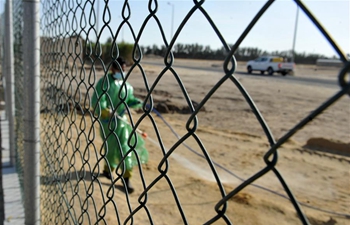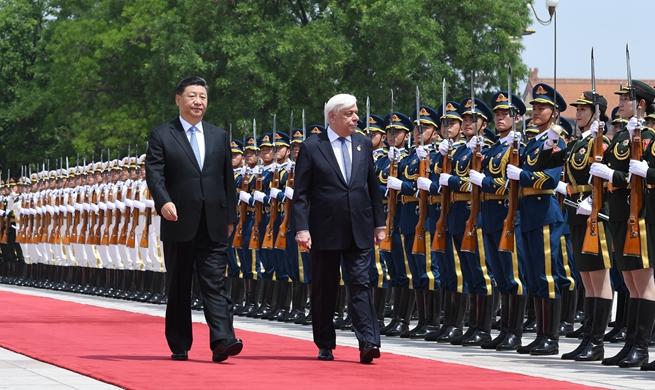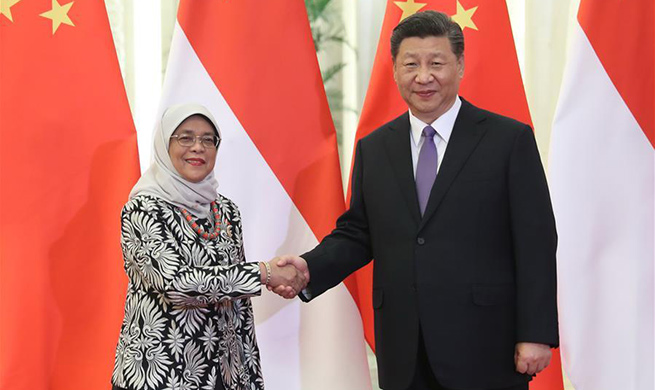BERLIN, May 15 (Xinhua) -- The German economy returned to growth in the first quarter of 2019 with gross domestic product (GDP) increasing by 0.4 percent compared to the previous quarter, according to preliminary figures published by the Federal Statistical Office (Destatis) on Wednesday.
The "positive impetus came mainly from the German domestic market," as significantly more was invested in buildings and machinery in Q1 of 2019 than the previous quarter, according to Destatis.
This growth, driven by the domestic market in Germany, "was more than most forecasters expected," Axel Lindner, deputy head of the department of macroeconomics at the Halle Institute for Economic Research (IWH) told Xinhua on Wednesday.
Private consumer spending in Germany also increased strongly compared with the previous quarter, according to the Federal Statistical Office.
"Above all, the domestic economy is resisting the downturn," said Claus Michelsen, chief economist at the German Institute for Economic Research (DIW).
German consumption, investment activity and construction investments "have made an extremely lively start to the new year and the labor market is also showing no signs of weakness," Michelsen noted.
According to Destatis, in the summer of 2018, the German economy even shrunk by 0.2 percent.
"The recovery in economic momentum reflects the fact that the stagnation phase in the second half of the year was largely marked by special factors," Stefan Kooths, head of the forecasting center at the Kiel Institute for the World Economy (IfW), told Xinhua on Wednesday.
These special factors included the low water level on the river Rhine and production barriers in the automotive industry but had either disappeared or were having less effect, said Kooths.
Despite this improvement, the Leibniz Centre for European Economic Research (ZEW) recorded a decline in financial experts' expectations for Germany's economy.
The ZEW's economic sentiment indicator, which is measured on a monthly basis, fell by 5.2 points to negative 2.1 points in May, after rising to a positive level in April.
Expectations for German economic growth in the medium term were therefore even further below the long-term ZEW economic indicator average of 22.1 points.
"The decline in the ZEW Indicator of Economic Sentiment shows that the financial market experts continue to expect subdued economic growth in Germany for the next six months," said Achim Wambach, ZEW president.
In the coming quarters, German economic growth "rates will probably be markedly lower because mild weather has boosted construction activity temporarily in the first quarter," IWH expert Lindner told Xinhua.
Moreover, "and more importantly, leading indicators such as orders received still point to a continuing weakness of demand for German manufactured goods," added Lindner.
According to the Federal Statistical Office, German government consumer spending declined in the first quarter of 2019 and "mixed signals came from foreign trade development," as both exports and imports increased compared with the previous quarter.
"On the whole, the economic picture is mixed: a booming construction industry and lively activity among consumer-related service providers are contrasted by a cooling industry," Stefan Kooths, IfW expert told Xinhua.
However, German industrial capacity utilization was "still above the normal level" and foreign trade was also very strong again at the start of 2019, Kooths noted.
"All in all, the German economy has started the year with new momentum," the German economist told Xinhua.
The German government and numerous economic research institutes had recently lowered their economic growth forecasts for Germany for 2019 due to the cooling of the global economy, ongoing trade conflicts and the uncertainties surrounding Brexit.













